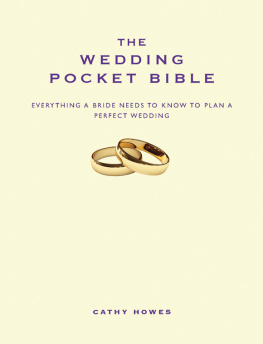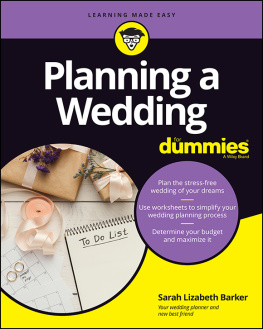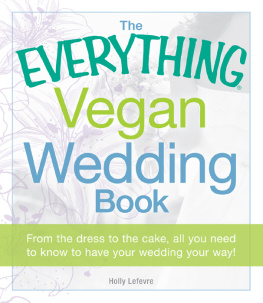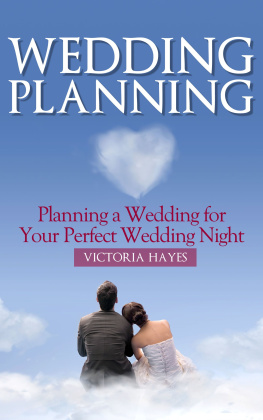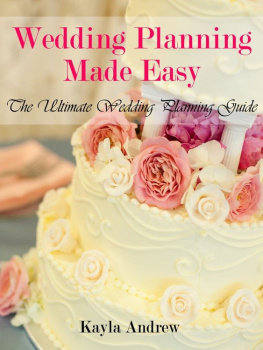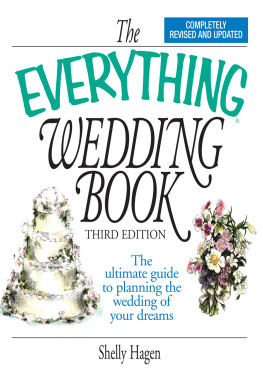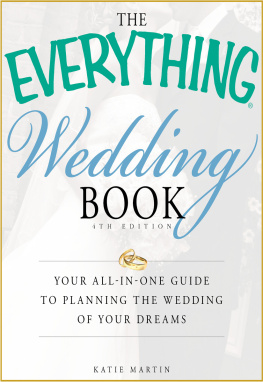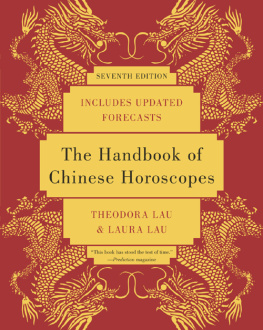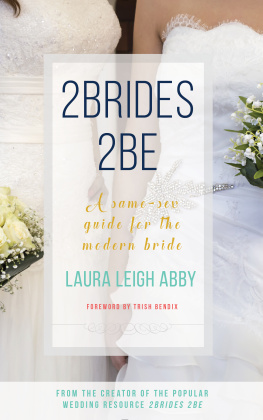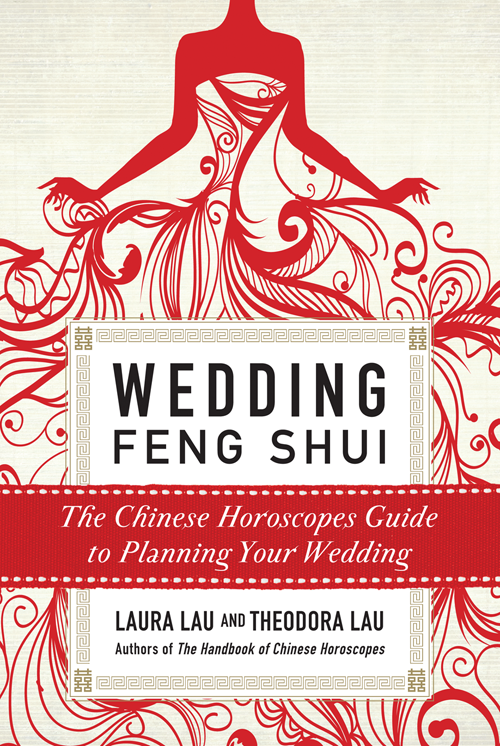
WEDDING FENG SHUI
The Chinese Horoscopes Guide to Planning Your Wedding
Laura Lau and Theodora Lau
Calligraphy by Kenneth Lau
Illustrations by Michele Fujimoto

For Harsh
and
Kenneth
Contents
Since The Handbook of Chinese Horoscopes was published in 1979, the number one question asked in fan mail has been about picking an auspicious day to get married. In Wedding Feng Shui , we cover this important questionbut many other aspects of Chinese astrology can improve your wedding planning as well, from compatibility based on your Chinese zodiac sign and the signs of your loved ones, to creative ways of weaving Chinese cultural traditions and symbolism into your wedding day.
We have assembled what we think is one of the most unusual books on the topic of weddings. Through the lens of the Chinese zodiac and our own application and interpretation of Chinese culture and folklore, we touch every aspect of planning a wedding. We talk about managing the many relationships that come together with a marriagethe interaction of the couple, in-laws, bridesmaids, groomsmen, vendors, and guests. We explore how your sign interacts and changes as a bride. To the delight of many of our readers, this book also recommends auspicious times and dates to get married over the next couple of years. We offer up the color and symbol palette of each animal sign and offer creative ways to mix and match these individual items to create a unique style signature to your and your fiancs big day. We call this process of introspection, exploration, and creativity Wedding Feng Shui and hope you find our book to be one of inspiration on your wedding journey.
Chinas history, folklore, and mythology captivate many and have given us a rich set of traditions. In this book, we share with you our familys knowledge of Chinese weddingswhich includes traditions that many brides and grooms still observe today in both the East and the West, as well as some that are lesser known. We advise you to engage your families in asking about what traditions they have kept alive and perhaps some you would like to bring new life to. Not only is this a fascinating family discussion topic, its especially important when planning a cultural wedding ceremony, no matter which cultureor culturesyour family has roots in. We share our family knowledge in Wedding Feng Shui and encourage you to research and add your unique touch to your wedding with your families history and your personality as a couple.
We wish you a long and happy marriage. May your hair grow gray together.
Laura and Theodora
Part I
How to Use This Book
W edding Feng Shui was written to inspire and provide practical advice for brides. As you read through this book, we hope that you come across new ideas and have some fun learning about yourself and your loved ones along your road to the big day.
There are three categories wed like you to reflect on when reading Wedding Feng Shui relationships, Chinese tradition, and symbolism.
Relationships: Finding relationship harmony comes from the compatibility of your birth sign and your fiancs, and how they interact with the signs of the other key members of your wedding, from attendants to in-laws. As described in Chapter 2 Reference Dates and Tables on the Chinese Zodiac, East-West Sign Combinations, and Animal Hours, a different animal governs each time component of your birth.
Weve provided the Wedding Feng Shui worksheets at the end of the book to assist in your planning and promote some self-discovery and inspiration through Chinese horoscopes.
Weve outlined the bride and groom worksheet in the most detail and provided an example. Start with you and your fianc, and then repeat the process for your bridesmaids, groomsmen, family members, and anyone else who will have an important role in your wedding, using the blank templates weve included in the back of the book. Once you have completed each persons Wedding Feng Shui Worksheet, you can better concentrate on the most relevant chapters for you. Keep in mind each persons strengths and weaknesses to create the most compatible wedding planning situation for yourself.
Tradition: In this book, we discuss a number of Chinese rituals and traditions. From post-engagement to post-wedding, there are many Chinese traditions that you can integrate into your wedding plan. We suggest you read and reflect on how (or if) you are going to incorporate each event. Below are some important questions to discuss with your families and to consider when planning the timeline of events. Share the information with your vendors and bridal party, so they can prepare as well.
Will you follow all Chinese traditional events or take an la carte approach? Which events?
What will be the location for the event?
What will you wear for each ritual?
How would you like these moments to be photographed?
Who will take part in each ceremony?
Symbolism: Chinese weddings are rich with symbolism and can inspire a unique theme or touch to your wedding. From color, imagery, and food, there is room for a lot of creativity in planning weddings. Look back on your Wedding Feng Shui Worksheet to discover your animals signature color, element, flower, and Western gemstone. Do the same investigation into other key players in your wedding and those you hold dear. You can honor a family member or friend who is important to you through a symbolic gesture like wearing his signs flower in your hair or finding inspiration for appreciation gifts through her year of birth.
One
East Meets West Wedding Planning Calendar and Helpful Tips
Twelve months before your wedding
- Share news of your engagement and enjoy being engaged.
- Start thinking about wedding themes and styles that appeal to you as a couple.
- Determine your wedding and honeymoon budget.
Eleven months before your wedding
- If hiring a wedding consultant or da ling jie (Chinese wedding traditions adviser), meet to discuss details.
- Set a theme for your reception.
- Discuss with your fianc and families what customs or rituals you would like to integrate into your wedding weekend.
- Research and meet with florists, caterers, musicians, and photographers/videographers.
- Reserve locations for your wedding ceremony, reception, and family rituals such as the tea ceremony and wedding banquet. Remember to include rehearsal times.
- Start researching wedding gowns and reception outfits, if applicable.
- Select your wedding party members and ask them to be a part of your big day. Get together and complete each persons Wedding Feng Shui Worksheet.
- Select an officiant, start discussing the ceremony, and begin any religious preparation.
Ten months before your wedding
- Choose and order your wedding gown.
- Set expectations with your maid of honor and bridesmaids on each persons responsibilities. Get them up to speed on any Chinese rituals you want to include and how they can help you prepare.
Nine months before your wedding
- Create gift registry and add new bedding to be used for an chuang (seating the new bed).
- Share detailed plans of your theme and chosen Chinese rituals with your vendors, so they can tailor their services.
- Determine the menu and drinks to be served at your reception, including wedding banquet. See symbolic foods for inspiration (pp. 22, 42).
- Purchase or order veil, shoes, and other bridal accessories.


